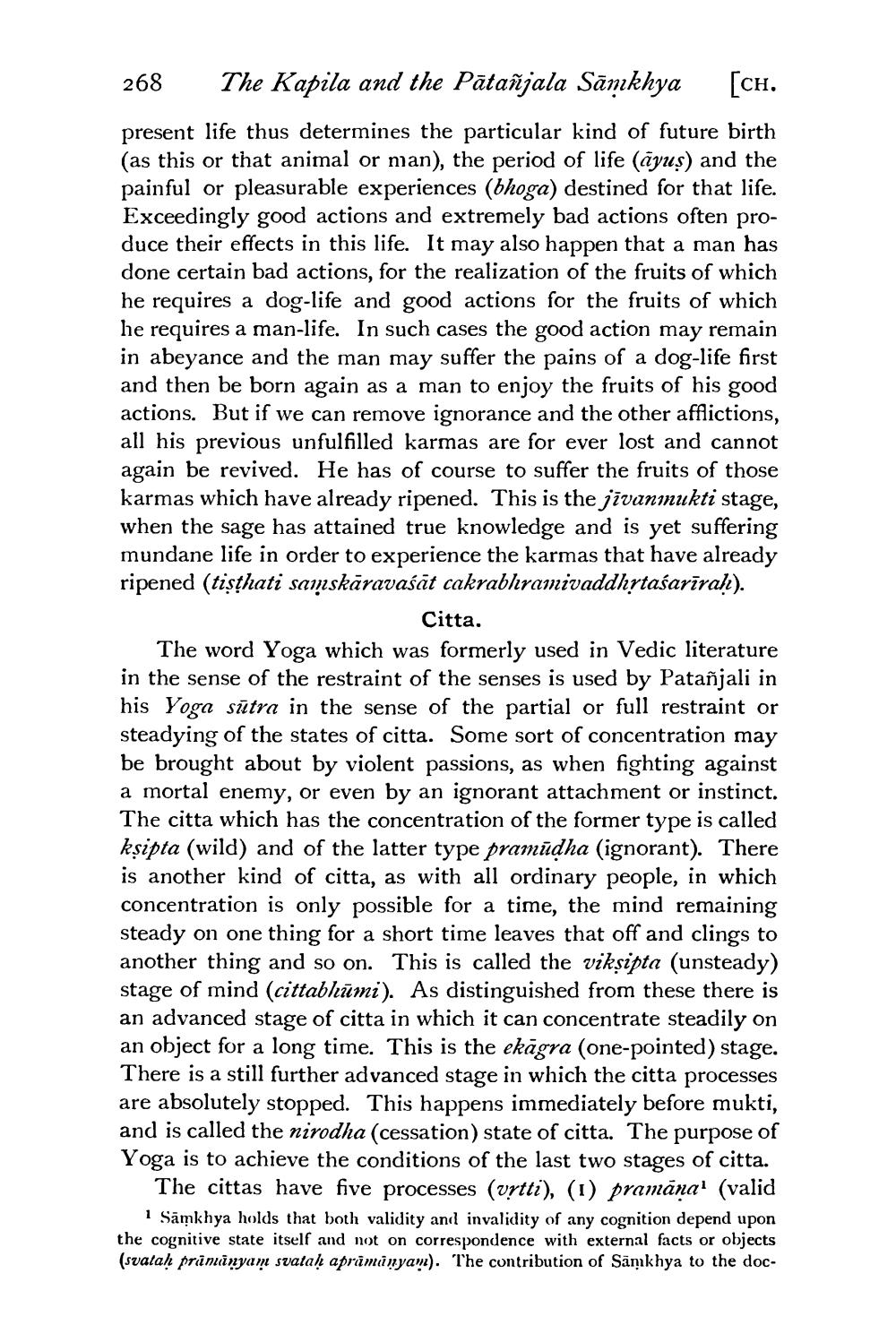________________
268 The Kapila and the Pātañjala Sānkhya [ch. present life thus determines the particular kind of future birth (as this or that animal or man), the period of life (äyus) and the painful or pleasurable experiences (bhoga) destined for that life. Exceedingly good actions and extremely bad actions often produce their effects in this life. It may also happen that a man has done certain bad actions, for the realization of the fruits of which he requires a dog-life and good actions for the fruits of which he requires a man-life. In such cases the good action may remain in abeyance and the man may suffer the pains of a dog-life first and then be born again as a man to enjoy the fruits of his good actions. But if we can remove ignorance and the other afflictions, all his previous unfulfilled karmas are for ever lost and cannot again be revived. He has of course to suffer the fruits of those karmas which have already ripened. This is the jīvanınukti stage, when the sage has attained true knowledge and is yet suffering mundane life in order to experience the karmas that have already ripened (tişthati samskāravaśāt cakrabhramivaddhytaśarīra!).
Citta. The word Yoga which was formerly used in Vedic literature in the sense of the restraint of the senses is used by Patañjali in his Yoga sūtra in the sense of the partial or full restraint or steadying of the states of citta. Some sort of concentration may be brought about by violent passions, as when fighting against a mortal enemy, or even by an ignorant attachment or instinct. The citta which has the concentration of the former type is called kşipta (wild) and of the latter type pramūdha (ignorant). There is another kind of citta, as with all ordinary people, in which concentration is only possible for a time, the mind remaining steady on one thing for a short time leaves that off and clings to another thing and so on. This is called the viksipta (unsteady) stage of mind (cittabhūmi). As distinguished from these there is an advanced stage of citta in which it can concentrate steadily on an object for a long time. This is the ekāgra (one-pointed) stage. There is a still further advanced stage in which the citta processes are absolutely stopped. This happens immediately before mukti, and is called the nirodha (cessation) state of citta. The purpose of Yoga is to achieve the conditions of the last two stages of citta.
The cittas have five processes (vrtti), (1) pramāna' (valid
1 Sāmkhya holds that both validity and invalidity of any cognition depend upon the cognitive state itself and not on correspondence with external facts or objects (svalah primanyam svatah aprūminyam). The contribution of Samkhya to the doc




